- Home
- Paul Fleischman
Bull Run Page 2
Bull Run Read online
Page 2
It was May when I arrived. The city itself was nothing you’d want to photograph. The streets were shank deep in mud and slops. Cows were slaughtered beside the Washington Monument. The stench from the canals must have turned God’s own stomach. But beautiful lilies rise out of swamps. It was in Washington that my luck bloomed.
I set up next to a Michigan regiment, and a boisterous, brawling lot they were. I painted a sheet with cannons blazing, hung it for a backdrop, set up my camera, and was swarmed with customers. How fiercely they glared! How proud their postures, each one a Caesar to himself and his family. That very first day I was taking the portrait of a Swede when some reveler fired off his gun and my subject fell dead on the ground. There was mourning and fighting. The man was carried off. I thought the portrait ruined by his moving, but developed it out of respect. It showed a blurry human shape seeming to step out of the standing man’s skin. I nearly discarded it. Then a notion struck me. My heart commenced to flutter like a hummingbird. And that evening, like so many others after, I did a brisk business, at ten cents a head, in exhibiting what I billed to be the first photograph of the human soul, plainly leaving a dying body. I have never gone hungry since.
* * *
SHEM SUGGS
* * *
I walked from Arkansas clear to Virginia. I’d a time tracking down the cavalry, and when I did it was long full up. I told the officer I’d groom the horses. An hour above the knees and an hour below was the regulation. I was the only one who didn’t complain. Other times, I mended saddles or doctored sick horses or watched the drills. It was grand to see the men ride in formations, sabers straight as church steeples. In the evenings they used them to roast rabbits and chickens. They were as fond of wagering as of food. They’d race horses any chance they got. If the ground was too muddy, they’d race sticks in the stream, and at night they’d pluck lice from off their blankets and race those, whooping ’em on like thoroughbreds.
One morning a captain came up to me. There was measles in the camp and a man had just died. The captain led me to the man’s horse, said that I could join Company A, and walked away. The horse was named Greta. She was a small, bandy-legged gray. Teeth rotten. Ragged mane. Some might have waited for another man to die. But to me, no finer horse ever breathed. I stood where she could see me plain. My heart was pounding. “My name’s Shem,” I said. She lifted her ears. We gazed at each other. “I sure am pleased to know you,” I said.
* * *
DIETRICH HERZ
* * *
For the first time in four years I didn’t feel myself a foreigner. Nearly all the regiment was German. The welcome scents of sausage and sauerkraut rose from every cookfire at evening. We had good lager beer and the finest band in the camp. Visitors were surprised to hear our commands shouted out in German. None, though, could doubt our love for the Union. It had given us all a new life.
As when we’d first come to this country, the women had been left behind. From New York the boxes soon began coming. Jams, pickles, books, writing paper, thread, and a hundred other useful things were sent by the Soldier’s Aid Society. I will always remember the first box that reached our tent. It was filled with linen shirts and handkerchiefs lovingly sewn by the women. We soon discovered that each held a note. One read “Brave friend, I pray for you daily.” Others urged us to remain hopeful and healthy. All were encouraging, and cherished. Hearing them read, I felt I could see the women, merrily chatting while they sewed. The shirt I received was of fine workmanship, the stitches nearly invisible. When I opened it up, a photograph fell out. It showed the head of a woman, light-haired and young and most attractive. Then I noticed the note she’d enclosed, unsigned. I picked it up and felt suddenly cold. I did not read it aloud, like the others. It said only “I fear I will take my own life.”
* * *
DR. WILLIAM RYE
* * *
Man is the deadliest of God’s creatures. None could doubt it who’d watched the troops train. The recruits received guns and were shown how to shoot them. The use of the bayonet was explained. The cannoneer’s craft was passed on from old to young—how to measure the fuses of shells that they might explode when amid the enemy, piercing scores of men with lead balls and scrap iron. How intently the men studied the art of killing. With what care their officers refined their skills through drilling, precision parades, mock charges. And yet, when the bugles are blown in earnest, how shocked we are that men bleed and die, as if we’d not striven day after day toward that very end.
My trade is healing, the opposite of a soldier’s. Knowing there would indeed be bleeding and dying, I offered my services. My task was to keep a regiment of one thousand North Carolina men healthy. Many were felled long before we saw battle. The paths between their tents were sewers, the aroma conspicuous half a mile away. The men drank fouled water, were crawling with vermin, and tormented their stomachs with a gut-strangling diet of salt pork fried in rancid grease. Typhoid and measles raced through the ranks. Scurvy and pneumonia claimed victims as well. Dysentery was exceedingly common, and diarrhea all but universal. On many a day, fully one third of the men were laid low with illness. I felt defeat at each death, and consolation. Those who’d died, I told myself, at least hadn’t lived to maim and murder countless other men in battle. It was a thought I never shared with the officers.
* * *
LILY MALLOY
* * *
Patrick entrusted Father’s glasses to a peddler who was heading our way. The man returned them to Father the next week and predicted that Patrick would make a fine soldier. Father sent him away without purchasing so much as a pin.
The wheat grew up past my knees, then my waist. The sod house seemed dismal without Patrick, and I stayed outside as much as I might. I spoke to him when alone in the fields. I told him how much I missed him and how I wondered what he was doing and seeing. He heard my words. One day I walked to town, stepped into Mr. May’s store, and was told a letter was waiting for us. My eyes went wide. It was from Patrick. I read it then and there by the window He was camped, he said, outside Washington. He could glimpse a Rebel flag across the Potomac. He said he wished we’d seen him in his uniform, which had looked quite fine until two days before, when it had almost dissolved in the first hard rain. The vile profiteers who sold them would, he hoped, be hanged. The Minnesota men still lacked guns and marched with cornstalks on their shoulders instead. He described his day’s schedule in detail and a game he’d learned, called baseball, in which one swung a stick at a yarn-covered walnut. His letter replenished me, as if it were food. I felt joined to him again. When I reached home and showed the others, they rushed to gather round, all but Father. He affected no interest at all and left. Yet when I reread the letter the next morning, I found his large thumbprints on all five pages.
* * *
TOBY BOYCE
* * *
I borrowed a fife, found a man to teach me, and commenced practicing from first light to night. For days I trudged up and down scales. Then through hymns. Then a songbook. After a week I told Grandpap good-bye, walked three days, practicing all the way, and joined the regiment’s band. We played at a big review that first day. The tails of the coat they gave me scraped the dirt. I hadn’t seen the music we’d be playing, but promised the bandleader I’d get through it. I did, not finishing much behind the others on most of the pieces and well out in the lead on “Dixie.” The crowd cheered. I could scarcely believe I was part of the army at last.
I begged God not to let me miss the fighting. It was said we’d be marching North any day and would give our next concert in Washington. Five weeks later we were still in Georgia. We played at the dress parades every evening and when important sorts came to visit. We practiced some, but mostly the men spent their time gambling and brawling. Whiskey wasn’t allowed in camp, but a woman used to come by, selling it from her special-made tin bustle. The cornet player poured liquor into a hollowed-out watermelon, buried it, and drank some each night through a length
of straw. There was stealing and swearing and poker playing with cards that had Jefferson Davis and the rest of the Confederate big bugs on ’em. I feared for my life when the men got drunk. It was not the Christian life I’d known, and I began to wish I’d never left home. I recollected Grandpap saying that if I ever saw the Devil to cut him in half and walk on between the pieces. But if I’d done that, there’d have been hardly a man left alive in the band.
* * *
JAMES DACY
* * *
How I longed to render my drawings in color! To show the red blouses of the Garibaldi Guards, the emerald flags of the Irish Brigade, the tricolored standard of New York’s French regiment, not to mention the companies of immigrant Germans and Scots and Poles, each with their own vivid uniforms. And then there were the astounding Zouaves, who truly put my pencils to shame. Baggy red pantaloons flapping like sails, leather leggings, red-braided blue jackets, and atop every head a red fez cap from which hung a long black tassel. They were New York rowdies dressed in the style of the Zouaves, the fearless soldiers of Morocco. Walking down Pennsylvania Avenue, I stopped and gawked at the sight of them, and watched one push his companion through a barber’s plate-glass window for sport. I’d heard tell of their penchant for mayhem. But the following day I saw Colonel Ellsworth lead them through the most difficult of drills, perfectly synchronized, faultlessly executed, their rifles spinning at times like wheel spokes. It was a stunning display. I made several sketches and left sure that no army could best the Union. Walking toward another camp, I skirted some woods, heard a voice, then had my faith severely shaken. I’d come upon an officer, no doubt one of the many inexperienced civilians elected to his post. He was poring over a book, and was practicing shouting orders to the trees. The scene filled me with foreboding. I declined to present it to the readers of the New York Illustrated News.
* * *
JUDAH JENKINS
* * *
Colonel Elmer E. Ellsworth. The world knows his name. Songs and poems were written about him. Babies were named for him, and streets, and whole towns. His ugly face was even printed on envelopes. But what of James Jackson?
I grew up in Alexandria and was there the day the Union troops first dared to invade Virginia’s soil. They skulked across the Potomac before dawn, riding on steamboats. We’d heard they might. I was eighteen years old and had stayed up all night waiting and watching from the attic window. They marched up from the river at dawn. When I spied the Zouaves, dressed up like peacocks, I thought I’d fallen asleep and was dreaming. Ellsworth sent a band of them to capture the telegraph office. Then he peered at the Confederate flag flying from the roof of the Marshall House Hotel. I saw him stride off in that direction and dashed down out of my house to follow. By the time I got there, he’d gone up the stairs, climbed out on the roof, cut loose the flag, and was heading back down the stairs with it. “I have the first prize,” he shouted out. Mr. Jackson, the hotel’s owner, met the intruder on the second-floor landing. “And I the second,” he said, and killed Ellsworth with a shotgun blast. Straightaway, a Union soldier shot Mr. Jackson square in the face, then bayoneted him over and over in the chest, for the crime of defending his property. His blood was every bit as red as Ellsworth’s, but who remembers his name?
Until that day I’d had doubts about secession. That evening I rode a horse to Centreville and joined the Confederates as a courier.
* * *
GENERAL IRVIN McDOWELL
* * *
I felt myself to be a horse who’s ordered to gallop while still hitched to a post. As commander of the Army of the Potomac, I was expected to crush the Confederacy’s army and, if need be, take Richmond, its capital. The public, the press, the politicians, the President—all demanded it. And since many of my soldiers were ninety-day men, whose enlistments would expire in July, I was expected to accomplish this with all speed. Despite the fact that my troops were as green as June apples, spoke a Babel of tongues, and were led by officers who knew nothing of battle. Despite lacking sufficient weapons, ammunition, mules, food, and equipment of every sort. Despite the fact that my success depended on keeping the Confederate army in the west from leaving Harpers Ferry and joining Beauregard, a duty given to General Patterson, who was too old and too timid for this or any task. Despite my not having a single reliable map of Virginia, which I was to invade. And despite the most worrisome problem of all, one I dared not complain of in public: I, who’d just a few weeks before been made a brigadier general in command of an army of thirty thousand, had seldom led more than a hundred men.
In spite of all this, I drew up a plan of attack. It was approved by the President. We’d begin our march south in the second week of July. I dreaded the coming of that day.
* * *
FLORA WHEELWORTH
* * *
My daughters departed soon after their husbands. The house held but me and the servants once more. After all the bustling, I found idleness irksome and organized a Soldiers’ Friend League. We sewed shirts by the score. We cut and rolled bandages. We searched our ragbags for scraps of linen and scraped them with knives to procure lint for wounds. While working we exchanged the latest news. General Beauregard, the hero of Fort Sumter, had come to Virginia and made his headquarters a few miles off in Manassas Junction. We felt as if the Lord had sent one of His angels to protect us from the Yankees. Mrs. Granger had actually spoken to him and reported him most charming. He was from French Louisiana and at once showed himself a gentleman by kindly advising all the civilians in Washington to leave, as he would shortly occupy the city. We prayed that he would do so quickly, for the newspapers said that the Union was sending thousands of armed Negroes and Indians to pillage the South and free the slaves. Weeks passed. Our troops made no advance. We fretted and furiously debated but could not understand the delay. Then Miss Pruitt read from a Richmond paper a report stating that Lincoln so feared an attack that he slept with a guard of fifty men and had lately been drunk for days at a spell. Upon hearing this, we concluded that General Beauregard had been halted by his honor, which would not permit him to strike an opponent who was already all but prostrate.
* * *
GIDEON ADAMS
* * *
To be a Negro living in the midst of whites, unknown to them, is to be a ghost spying on the living. Oftentimes I felt I must have joined the Southern army by mistake. The soldiers mercilessly abused a stuttering black cook in our company and tormented the collie dog he’d brought with him. Most of them said they were fighting against secession, not against slavery. Some declared they’d rather shoot Negroes than the Rebels. My ears burned at such words.
In May we traveled to Washington. A march on Richmond was constantly talked of, but instead we merely crossed the Potomac and drilled on the south bank instead of the north. Unlike many of the men, I could write, and was often asked to take down their letters. I recorded their complainings about the heat, the drilling, the food, the lice. Many vowed to rush back to Ohio the moment our ninety-day term had expired, no matter if the Rebels were marching on Washington. I nearly strangled my pen at such times. Then one day I found myself putting in ink a loutish private’s opinion that the blood of black people was thinner and inferior to that of whites, which explained the Negroes’ lack of intelligence. How I hungered to yank off my cap and show him which of us knew the alphabet and which was the inferior, ignorant fool! I almost did so, and halted my pen. Then I mastered myself and finished the letter, but closed it with “Your wood-headed jackass” instead of the farewell he dictated. He grinned, uncomprehending, at the words, then below them scrawled, with some effort, his “X.”
* * *
COLONEL OLIVER BRATTLE
* * *
In June I joined General Beauregard’s staff to advise him on strategy. I found that he felt in no need of advice. Though his celebrated assault on Fort Sumter had been nothing more than target practice, he’d been hailed a hero so loudly that he’d come to think he deserved the name.
He was a man who bore watching. President Davis knew this, and knowing as well that our troops were both unready and greatly outnumbered, forbade us to take the offensive. We were to pick a strong defensive position and block any Union advance on Richmond. We decided to make our stand along the southern bank of the stream called Bull Run. I studied its meandering course for miles. The banks were steep, the fords easily defended. The hills overlooking the terrain from the south would offer us a commanding position. But defense held little allure for Beauregard. In utter violation of his orders, he planned to cross the creek, outflank the Yankees, cut them off from Washington, then take the city himself. He was short, like Napoleon, and believed himself to be as brilliant a general. In private, I feared that the similarity between them ended with their height.

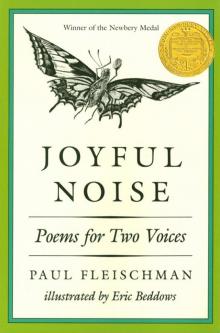 Joyful Noise
Joyful Noise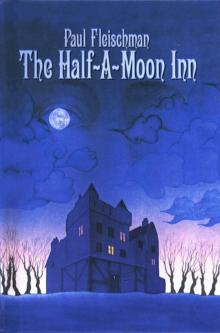 The Half-a-Moon Inn
The Half-a-Moon Inn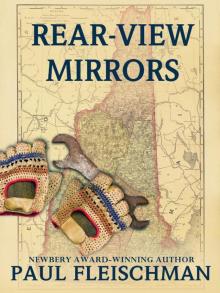 Rear-View Mirrors
Rear-View Mirrors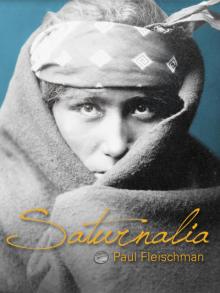 Saturnalia
Saturnalia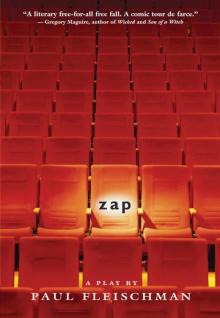 Zap
Zap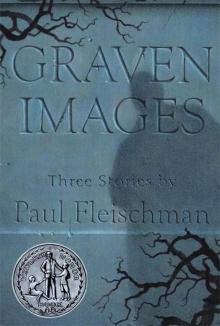 Graven Images
Graven Images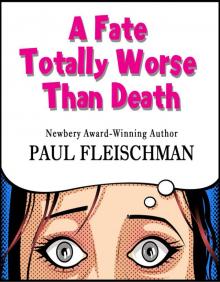 A Fate Totally Worse Than Death
A Fate Totally Worse Than Death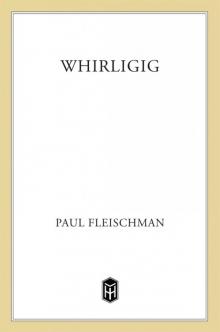 Whirligig
Whirligig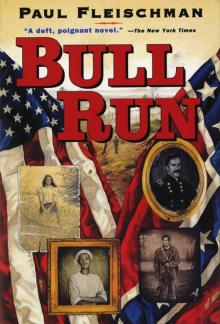 Bull Run
Bull Run